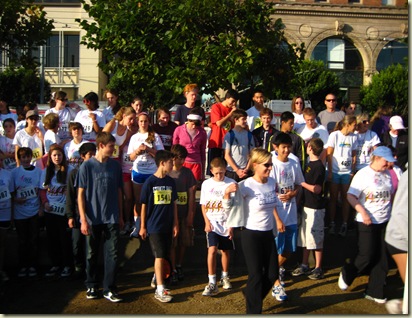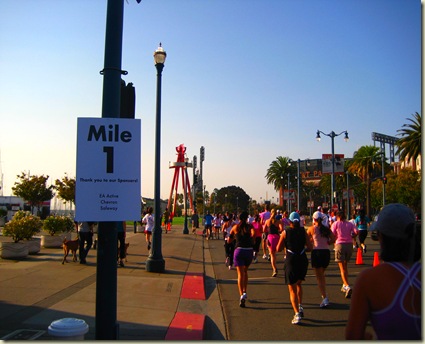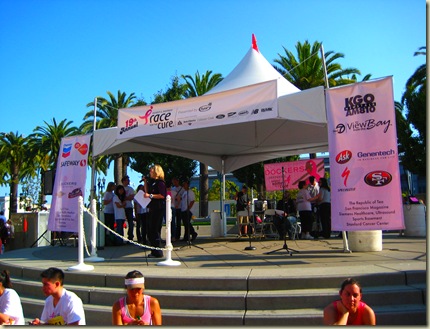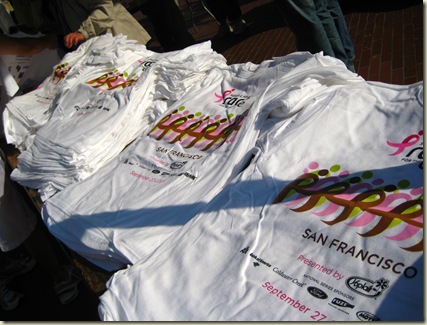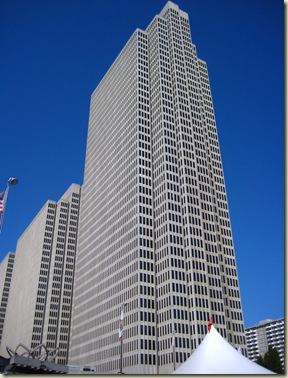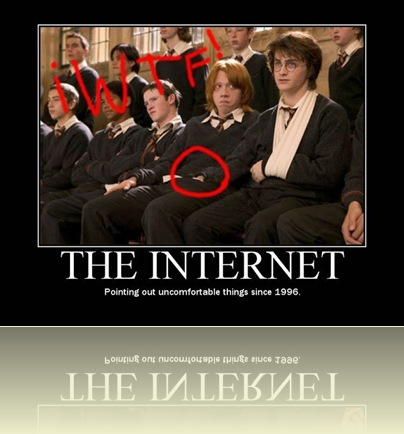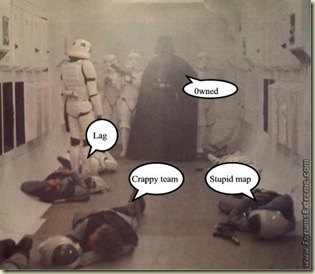While I was in middle school, popularity was extremely divisive. The school lunch tables rarely interacted with each other, and when they did, it was seldom amicable. The problem of nerdiness plagued me for my years at primary school. The archetypical nerd is unsexy, interested in obscure topics and has few or no friends. Typically considered to be a problem, the discrimination that they face is part of a larger problem of anti-intellectualism and social conformity. This blog post will

analyze the affects of nerd-stereotyping has on both nerds and non-nerds.
Yes, A Problem Exists
My greatest fear in writing this post is that my readers will dismiss the problem without thought. I find that such people have been sheltered and unexposed to the sad truth of this discrimination. They may simply write off their experiences with nerds and the teenage social structure as simple, light-hearted jokes, remaining completely ignorant of the far-reaching damage it has caused.
The putrid hatred that nerds face is a caustic acid that causes massive emotional and mental damage. In the worst cases, the misery is so great that they commit suicide. This hatred is supported not only by their peers, but school administrators, parents and popular culture.
On April 20, 1999, the Columbine Massacre occurred, bringing social outcasts and their behavior into public scrutiny. Harris and Klebold were both labeled as “nerds” for their anti-social behavior and their interests in obscure gothic culture. The massacre that they started brought nerds into scrutiny. That day started somewhat of a “witch-hunt”, fearing another shooting, administrators sought to eliminate nerds. By sending nerds to behavior modification specialists, they created a popular slippery-slope out of ignorance and misinformation. They created imaginary enemies.
WikipedianMarlith’s Theory
Middle school presents the most vicious social structure that children face during their educational career. Personal popularity is extremely divisive during that time. As a result, many children become willing to push their more helpless peers down the ladder through constant derision. Such slurs are repeated to the extent that they become misconstrued as truth.
In addition, the preteen years present to children a desire to mature as rapidly as possible. The aggressive children’s media supports this, by pushing forward their vision of “cool”, they only reaffirm the stereotype for them. The upcoming teenage years are what preteens look forward to and what they perceive to be “cool”. Hypersexualized gossip and machismo are often highlighted in tween media. People who lack interest in such topics are radically different from the crowd, and thus, are labeled as nerds and social outcasts by their preteen peers.
The tween years also present the greatest extent of social conformity. Conformity comes directly out of a fear of being ridiculed. A kid that is interested in Pokemon at twelve will be derided by their classmates. To avoid such derision, he would hide his interest in Pokemon to avoid being perceived as “nerdy”. By conforming to preteen social norms he oppresses himself.
The popular culture does nothing but ingrain this stereotype into our collective social consciousness. Villains in science-fiction media are

typically depicted as nerds. Take for example, Wallace Breen from the video game
Half-Life 2. Within the Half-Life universe, Breen is the director of the Black-Mesa Research Facility. Brutally intelligent, he negotiates an agreement with an invading extraterrestrial race to enslave humanity in exchange for power. Establishing a dictatorial government, Breen fits very much into the nerd stereotype. This only reinforces the misinformed belief that anti-social people threaten society.
Vicious Social Structures and the Media Problem
Developmental psychologist Gil Noam highlights some issues that characterize preteen development.
- Self strongly defined by group.
- Self defined through others’ eyes
- Sense of belonging essential to well-being
- Hypervigilance about being liked and accepted
These social worries take the prime position of importance in tween minds. As a result, marketing has been quick to take advantage of them. The anxiety over “belonging” is what powers the preteen media. Thus, we have gossip magazines pushing forward a preoccupation with identity.
As a result, nerds, who are not concerned with “belonging”, are left completely out of the social turbulence of that time. They stand aloof to the common interests of their peers, unknowingly adhering to unfashionable passions. Thus, they are mercilessly teased and must change their behavior or feign an interest to avoid such derision.
Video Games and Anime: Why Stuff that Excites Nerds Bores Everyone Else
When asked what nerds do for fun, most non-nerds would respond with video games and anime.
Video games have become mainstream now. While in the nineties, video games were niche, a small market was powered by smalltime hobbyists. Playing games was considered a nerdy activity back then.

Now, in the year 2009, the market is massive, powered by great corporations and powered by non-nerds. At this point, the fact that someone plays video games is not justification to classify that person as a nerd. The type of games that one plays governs the classification of people as nerds. Take a look at some big games from the last few years.
- Call of Duty 4: Modern Warfare ~ Infinity Ward (2007)
- World of Warcraft ~ Blizzard (2004)
- Guitar Hero ~ Various (2009)
- Chrono Trigger ~ Square Enix (1996)
- Command and Conquer 3 ~ EA Los Angeles (2007)
- Madden 10 ~ Electronic Arts (2009)
From the list provided, a great distinction can be seen in the types of games listed and the audience that they target.
Modern Warfare and
Guitar Hero are both pick-up-and-play games. They are simple with little back story. With little to understand and simple, reflex based gameplay, such games are not complex. Thus, they are popularly perceived to be non-nerdy.
Take a look at games like
World of Warcraft, Chrono Trigger and Command and Conquer and a clear distinction between the two camps appears. The latter games require a high-entry fee. Interest in them takes a long time to develop.
Command and Conquer requires the player to understand a complex backstory and universe, as well as memorize formations, unit types and resource types.
World of Warcraft requires the player to understand a fantasy universe with conflicts between kingdoms and races, in addition to that, the player must master a complex battle-system and participate in an alternative economy. The sheer investment that these games require of their audience separates them from the likes of
Modern Warfare and causes their fans to be perceived as nerds.
Intelligent, Yet Ugly and Awkward: The Unsexiness Stereotype and Why Lewis Skolnick Will Never Get Laid
Nerds are typically considered to be unattractive and awkward, knowing more obscure
Metroid characters than they do girls. Once again, stereotyping rears its ugly head to portray such people as unsexy and creepy.
As I stated above, popularity is the most divisive factor for middle-school kids. At this time, social conformity and sexual flaunting begin to take place. Intelligence at this point is widely perceived to be unsexy, as the kids who were always “good at math” were usually the most aloof to the social structure. Being smart would only distance kids from their popular peers. Abnormality is shunned during this period, and thus, intelligence is perceived to be unsexy.
The fact that intelligence pleases adults is a contributing factor to the unsexiness stereotype. Kids who get good grades are usually perceived to be “suck-ups” who exist to please teachers. Their peers eventually fall upon a slippery-slope. They conclude that nerds are far more likely to snitch on their peers as well as suppress sexual contact in order to gain adult approval. Thus, the closeness that nerds have with adults causes them to be perceived as unsexy.
Status Anxiety
Kids who are weird or unpopular or nerdy get treated with contempt and feel less confident; therefore they seem less appealing, at least while everyone is under the spell that lasts until later in high school. Then most kids wake up and realize that variety is the spice of life, and nerd/geek persecution abates dramatically ~ David Anderegg
If nerds are the archetypical model of the unpopular, anti-social kids, than the exact opposite of them will be popular, highly social kids. Popularity is important to preteens, and thus, nerd-persecutors ofte

n seek to push nerds down the social ladder. Status anxiety is fueled by insecurity, fear of ridicule. Nerds are self-unconscious, making them an easy target for their persecutors.
The kids who are hurt most by stereotyping are the ones who suppress their own interests to fit in. Nerd-bashing does nothing but promote anti-intellectualism and cause pain to its victims. Preteen social-conformity is on the rise because of stereotyping, causing self-destructive behavior on the parts of both nerds and non-nerds.


